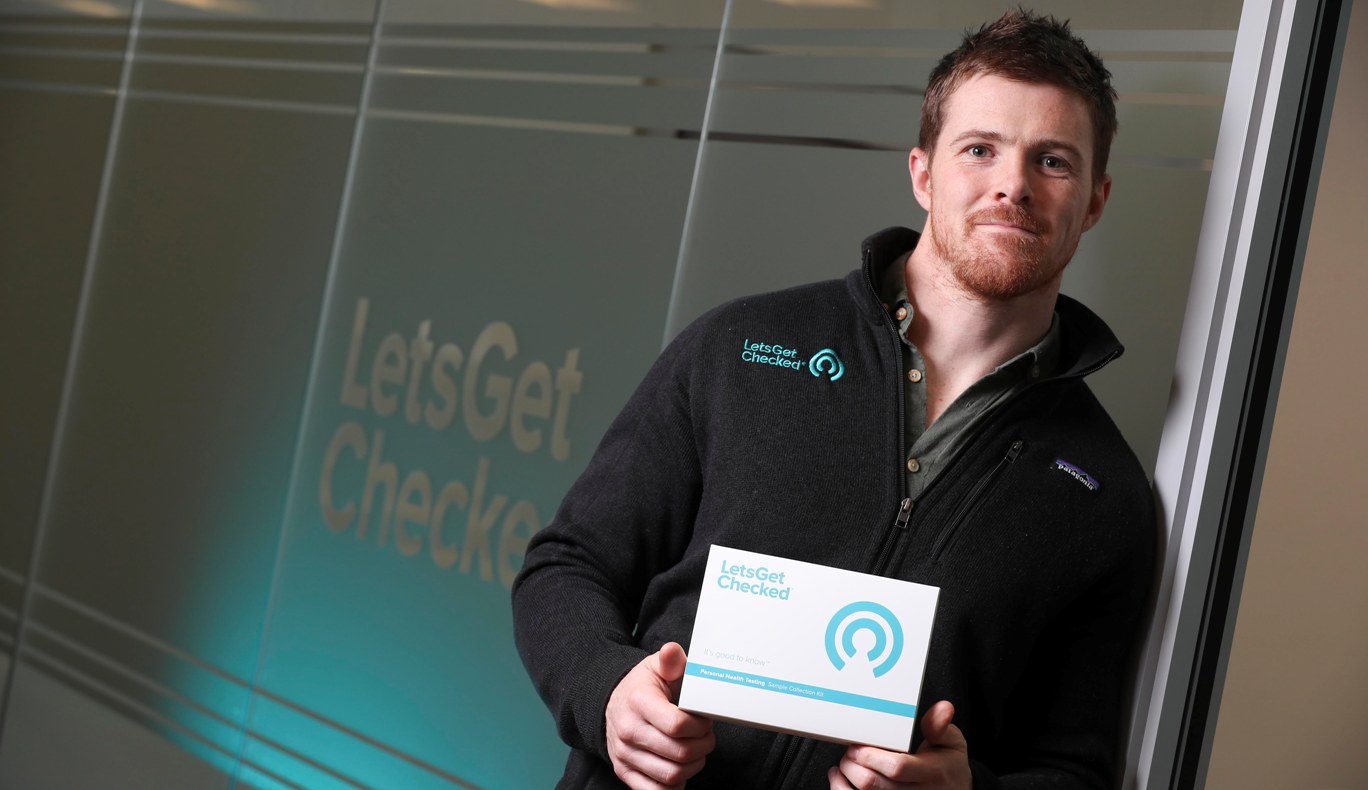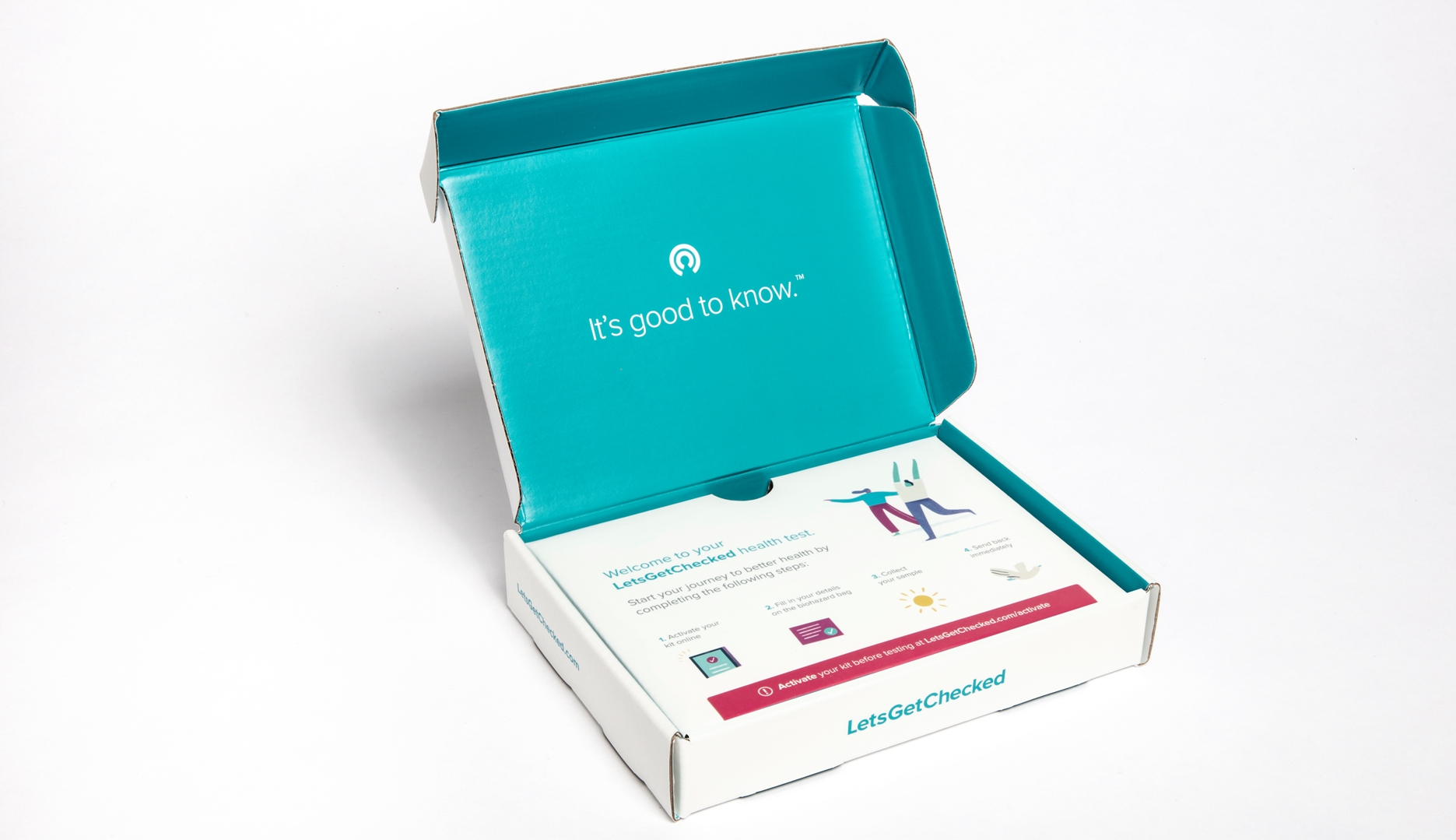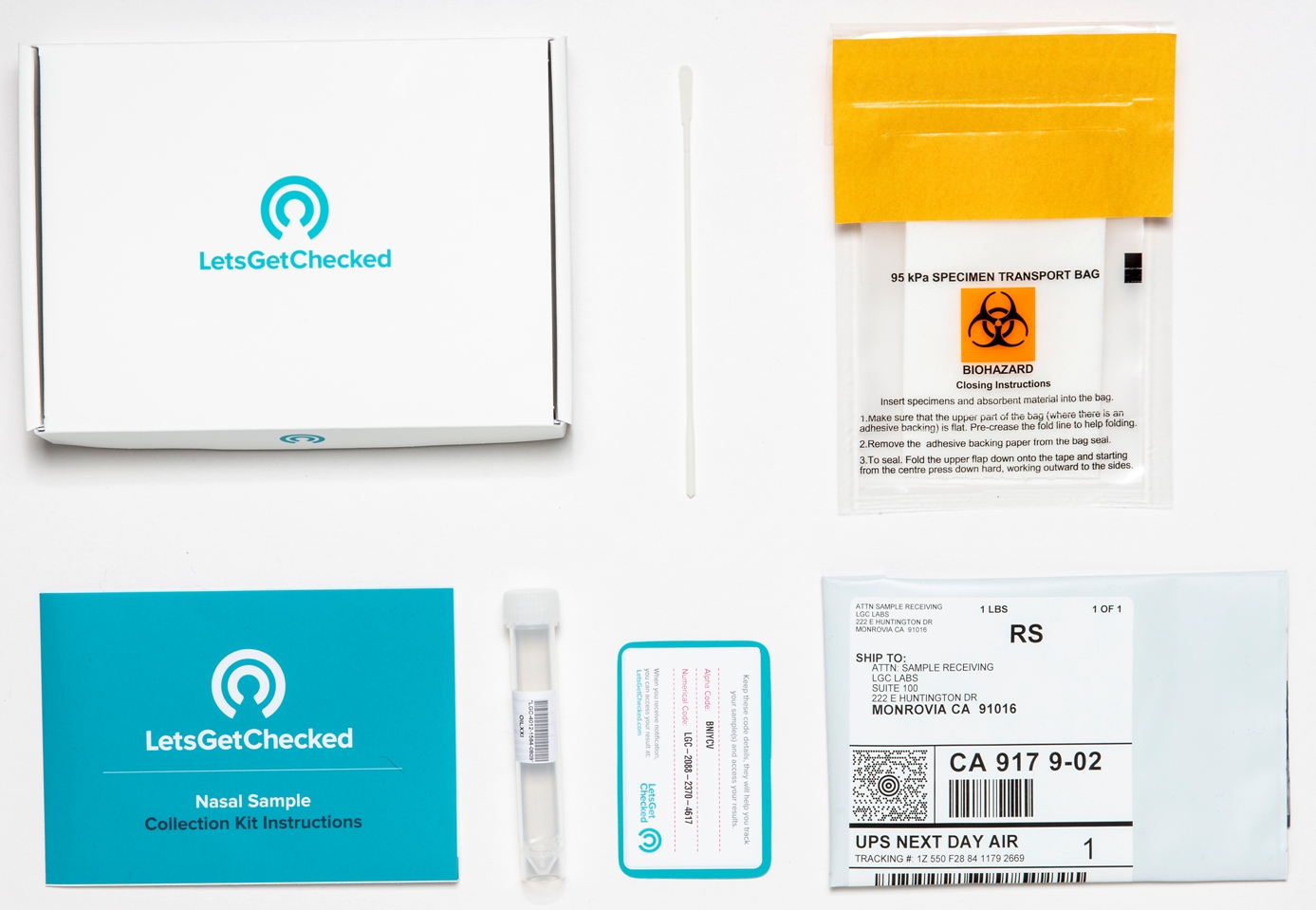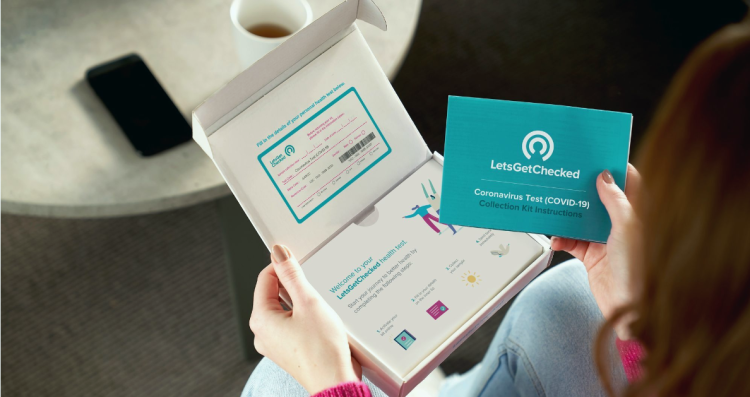LetsGetChecked, a company that develops at-home health-testing kits covering various conditions, has raised $71 million in an “oversubscribed” series C round of funding to accelerate the production and supply capacity for a new COVID-19 testing kit.
The round fits into a broader telehealth trend that has seen startups raise sizable sums for technologies that enable professionals to administer health care services remotely. LetsGetChecked is now well-financed to push ahead with plans to enhance screening and testing capacity for a pandemic that has impacted billions of people globally.
Founded in 2015, LetsGetChecked — which has offices in Dublin and New York City — already provides an array of home-based testing kits, covering sexual health, diabetes, cancer screening, vitamin deficiencies, and more. But back in March, the company announced a new two-part coronavirus test aimed initially at frontline workers. The first part constitutes a rapid blood test that detects the presence (or absence) of antibodies produced by the body to fight off COVID-19 after symptoms first appear. While this test provides an immediate result, a secondary lab-based test — relying on nasal swabs — confirms the initial results a couple of days later.
“If you have had COVID-19 symptoms for a few days, or if your symptoms have already resolved, the antibody test can help determine whether these symptoms are or were related to SARS-CoV-2 infection,” LetsGetChecked CEO Peter Foley told VentureBeat. “In the context of screening, the antibody test gives an immediate indication for someone with symptoms that they are likely related to coronavirus. The confirmatory swab test determines [whether] someone is currently infected with the virus or not, and therefore whether they might be capable of passing the virus to someone else.”
June 5th: The AI Audit in NYC
Join us next week in NYC to engage with top executive leaders, delving into strategies for auditing AI models to ensure fairness, optimal performance, and ethical compliance across diverse organizations. Secure your attendance for this exclusive invite-only event.

Above: LetsGetChecked CEO Peter Foley
In-house
For most of its history, LetsGetChecked has worked with a network of CLIA-certified labs in the U.S and internationally, but earlier this year the company launched its own lab in California, dedicated entirely to analyzing results produced by its range of home test health kits — and the timing turned out to be rather fortuitous. “When COVID-19 broke, we were well-positioned to bring a solution to market and to help with much-needed testing,” Foley said.
LetsGetChecked promises to help “relieve pressure on over-stretched hospital screening services” by providing additional testing capacity. However, while it sells most of its other health tests to people to use at home, the two-part COVID-19 tests are currently only being administered by health care professionals, who can conduct the tests in patients’ homes and in other locations, such as hospitals and nursing homes. But the company is now working with the U.S. Food and Drug Administration (FDA) to gain approval for an emergency use application (EUA) that would allow customers to buy kits online for home use.

Above: LetsGetChecked’s COVID-19 testing kit

Above: LetsGetChecked’s COVID-19 testing kit: What’s in the box
Unlike the health care professional kits that are available now, the direct-to-consumer kit, if approved, will only contain the nasal swab portion of the test. It will set individuals back $129, including everything — express return shipping, lab analysis, physician review, nursing support, and access to a dedicated mobile app where patients can see their results online.
At the test’s initial launch in March, LetsGetChecked committed to carrying out 250,000 tests via its first batch of kits, with plans to scale the service to more than 1 million of the most at-risk patients in the coming months. When asked by VentureBeat, the company wouldn’t confirm how many COVID-19 tests it has conducted so far.
“With the onset of COVID-19, we realigned resources with a view to helping with this global pandemic and are currently delivering tens of thousands of tests per day to critical and frontline health care workers,” Foley said. “We are working hard to deliver COVID-19 testing into the home and hope to have an answer soon.”
Telehealth
LetsGetChecked had previously raised $42 million, including a $30 million tranche raised less than a year ago, and its latest cash injection — which was co-led by Illumina Ventures and HLM Venture Partners — points to the need to produce scalable tests to curb the spread of COVID-19. The company said it would also use its new capital to “scale up activity” at its Californian lab and expand its operations in the U.S. and Europe.
Other players in the home testing realm include Austin, Texas-based Everlywell, which closed a $50 million round of funding last year. Everlywell announced an at-home COVID-19 testing kit back in March, but the company now seems to be only offering the kit to “qualifying organizations.”
In the broader telehealth sphere, Tyto Care last month raised $50 million to grow its remote examination and diagnostic platform, which includes a health kit that anyone can use at home to test their lungs, heart, throat, ears, skin, abdomen, and body temperature. Last week, Medici, which is a little like WhatsApp for remote medical care, secured $24 million in fresh funding, while Vida Health closed a $25 million funding round to help therapists treat chronic health conditions remotely.
LetsGetChecked also confirmed that the global lockdown is having a noticeable impact on its wider health-test business.
“We have seen a significant uptick in many of our other tests also,” Foley said. “Many tests have doubled since COVID-19 began. We believe this is a combination of people wanting to avoid face-to-face contact or putting additional stress on the medical frontline while also being more concerned for their health in general at this time.”


